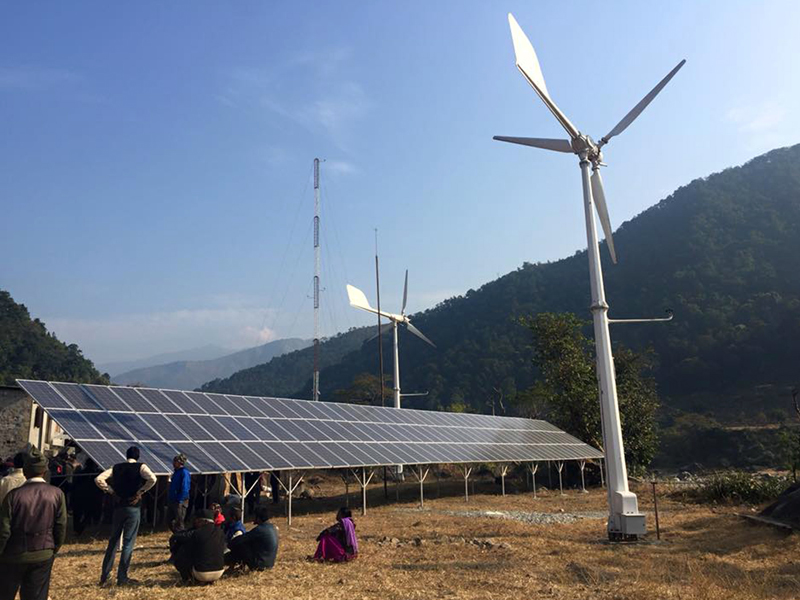Khotang receiving 24/7 power supply through solar grid
Khotang, March 14
Minister for Population and Environment Biswendra Paswan today said preparations were on to establish one solar energy office in all the provinces as part of the government’s plan to make the country load shedding free.
Inaugurating the Solar Micro Minigrid Project at Chyasmitar, Khotang, Minister Paswan said the government had launched a special campaign to rid the country of long load shedding hours.
“As part of the government’s plan to free the nation from power-cuts, preparations are on to establish one solar energy office in all the provinces,” he said.
Jivan Baidhya, chief engineer at the project, said the project was brought into operation at Bahunidanda, Chyasmitar and Harkapur with financial assistance from various donor agencies.
The project was launched with the initiative from Halesi Solar Minigrid Company Limited.
Baidhya said solar grids with capacity of 20, 22 and 31 KW were set up at Chyasmitar, Bahunidanda and Okhaldhunga’s Harkapur, respectively.
Chyasmitar Grid Construction Consumers’ Committee Chairman Mahesh Adhikary said the locals were elated at the prospects of having adequate power supply.
According to a statement issued by Asian Development Bank, three remote villages in Nepal’s Okhaldhunga and Khotang districts are being supplied with round-the-clock power from the nearby solar micro-grids.
The uninterrupted power supply is said to help the locals save money, avoid carbon emissions, and provide the communities fresh economic opportunities.
“Nearly a quarter of Nepal’s population has no access to electricity and relies heavily on kerosene.
Since most of the population resides in remote areas, there is little possibility of connecting to the national power grid from such far flung places in the near future,” said Jiwan Acharya, Senior Energy Specialist at ADB.
“The solar micro-grids installed here will provide clean and cost-effective energy which will change the lives of the local communities and serve as a model for other far-flung villages,” he said.
“The three solar micro-grids were installed in the communities of Harkapur in Okhaldhunga district, and Kaduwa and Chyasmitar in Khotang District.
They will provide a 24-hour reliable electricity supply to around 540 people in 83 households and 25 local businesses,” added Acharya.
With the use of solar power instead of fossil fuels, the project will avoid 41 tons of carbon dioxide emissions every year.
The solar micro-grids and battery storage were built by Gham Power Pvt Ltd along with financial assistance from the local communities and a $100,000 grant from ADB through its ‘Energy for All’ programme.
Besides, other technical and financial assistances were provided by DOEN Foundation and NMB Bank in close collaboration with Alternative Energy Promotion Centre, the statement added.






